With gas prices fluctuating daily, drivers need to get the most out of every tank. And with simple fuel-saving tips, tricks and maintenance checks, you can learn to stretch your fill-up to the fullest.
 1. Ditch The Clunker
1. Ditch The Clunker
Fuel efficiency has improved as new, more efficient vehicles have been designed over recent years. Choosing a newer, more fuel-efficient vehicle can save you thousands in the long run, both in dollars and minutes spent at the pump.
2. Save With Safety
Making small safety changes to your daily driving habits adds up in your tank, your wallet and your well-being. Fast acceleration and hard braking lower gas mileage by up to 33% on the highway and 5% in a city, according to the U.S. Department of Energy. Keep a lid on aggressive driving and travel with zen-fueled efficiency.
3. Drop The Excess Weight

Rooftop cargo containers are a great help on family trips. But these space-savers create wind resistance, which makes your car work harder and burn up to 17% more fuel on the highway. Excess weight in the trunk also sucks up fuel unnecessarily at a rate of 1% for every 100 pounds. Leave empty or unused cargo containers at home and clear out clutter for a smoother ride and steeper savings.
4. Minimize Winter Driving
Did you know your car is less fuel-efficient in cold weather? Warming a car takes a lot of gas and can drain your tank before you even hit the road. Most manufacturers recommend warming your car for just 30 seconds and driving off slowly rather than long, idling warm-ups. Try parking your car in a garage to keep the engine warmer and combine trips and errands in the colder months.
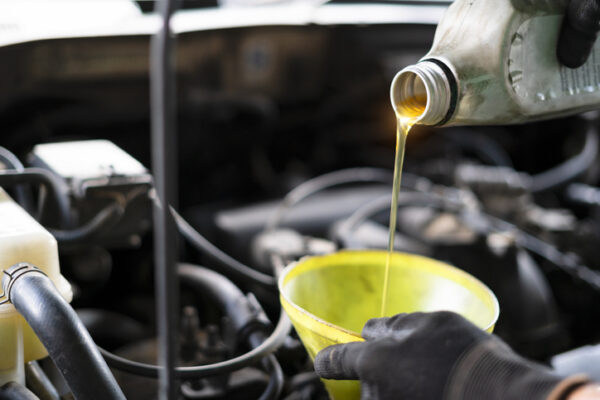 5. Maintenance: Pay Now, Save Later
5. Maintenance: Pay Now, Save Later
Staying up to date on regular vehicle maintenance keeps your car more fuel-efficient. Regular oil and filter changes keep cars running in the fuel-efficient zone. Tires that are properly inflated reduce drag and won’t have your engine working overtime, increasing your gas mileage and lowering carbon emissions.
Fill-ups got you fed up? With the Gas Finder feature on the GEICO Mobile app, you can locate gas stations near you and compare real-time prices to find the best deal. Download GEICO Mobile today and start saving!
By Katherine Palbom

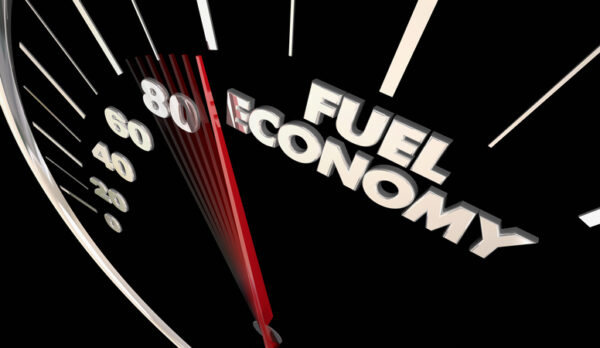



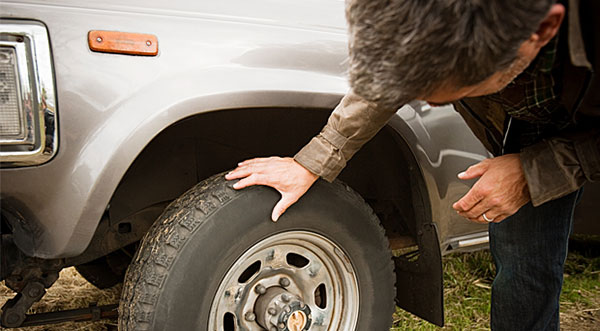


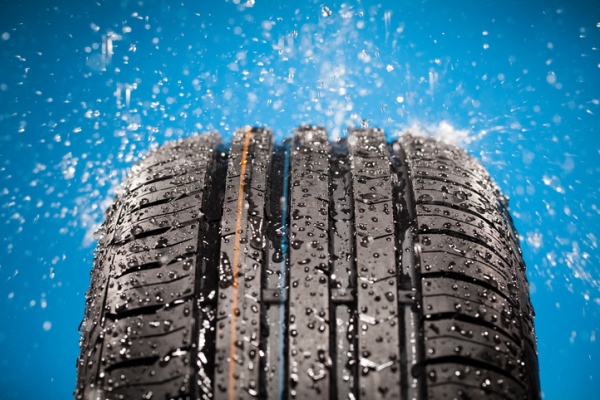
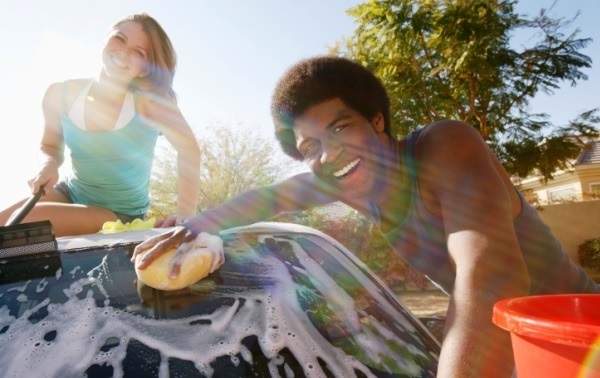
Denise says,
Thanks for the great information. I did not know that cars use more gas in the cold weather.
Will Johnston says,
The best way to increase gas mileage is to drive like there’s an egg between your foot and the gas pedal….
Pauline says,
Ditch the clunker!! And then incur car payments. I don’t think so. Buying gas is much cheaper than car payment. Maintain the clunker and it will do its job!!!!!!
Arthur Graham says,
Thanks for these tips-=-very helpful.
Dierk Hars says,
Here are some more comments how to save fuel:
Buy or drive small cars with less weight (in the range of 1000 to 1300 kg)
Switch of the AC whenever it is possible and use “Natural AC” with open windows or sun roof.
Drive cars with small engine capacity (swept volume); 1 L to 1,5 L engine capacity
Drive or buy cars with less cylinders (2, 3 or max. 4 cylinders)
Drive or buy cars with less power. 75 KW engine power is more than enough.
Use tyres with a small tyre width (depending of the type of car example given: 195/60R 15 88 H
Drive and operate the engine always in part load; Never use full throttle
Use multigrade oil, example given: 5 W – 40 (reduces fuel consumption when the engine is cold and has not yet reached the normal operating temperature.
Try to avoid short distance driving.
Beverly Southerland says,
Not until everyone drives a small car then I’ll think about it. But when I get on the interstate I want to be able to hit the gas & go so I don’t get run over by that 18 wheeler. If I had more money I’d be driving one if those 700 hp & getting tickets. Drove 4 cylinders during the 70’s gas crisis. Never again. I’ll stick with 6 cylinders. Small cars scare me.
Lloyd Simpson says,
Driving between 55 to 62 mpr will get you the best millage.
Lloyd Simpson says,
To the 55 to 62 mpr will get you the best millage on any vehicle diesel or gasoline. From semi trucks to cars.
Marlene Peteani says,
You did NOT send my vehicle insurance cards.
Mark says,
Totally wrong about the warm up. Driving on a cold engine is not a good thing and most people need to let their cars warm up to defrost the windows. 30 seconds is not enough.
Alvin Durrence says,
Totally correct. Todays engines are made to start driving almost immediately. That’s the reason for the 5W-20, 0W-20,etc… Older engines used 10W-30, 30W, etc… and requires a warmup period to get the oil to the right viscosity, to protect the engine. Today’s engines, also had the choke system, which burned more gas to warmup, than todays engines, which the computer controls the fuel air mixture, for lots more efficient startups.
Alvin Durrence says,
Suppose to be older engines had choke system. Sorry.
James McIlvaine says,
I try to start decelerating a long time before a red stop light. I touch and release the brakes several times. This keeps the discs cool and reduces brake pad wear. If your vehicle is still moving when the light turns green, it takes much fuel to accelerate past the light than if the vehicle is stopped. I usually get one hundred thousand miles on a set of ( good quality) brake pads.
Radial tires inflated to 35 psi. all around flex less as they roll, saving fuel and reducing shoulder wear. Forget the car manufactures tire pressure recommendations. They want your vehicle to ride smoothly, knowing that you have to buy tires, not them.
Rey Noriega says,
Good article. Very helpful.
Danny Rodriguez says,
Check tire pressure ones a month. Maintain proper air pressure. Will increase gas mileage
Suzanne Irving says,
Thank you Geico for the information. These are things everyone should know, and probably do, but don’t think about every day. Thank’s for reminding me!
Sincerely,
Suzanne Irving
Paul says,
The best advice I can give is to add Lucus Fuel Treatment at each fillup. I drive a Prius and it adds 2 MPG to the already great MPG I get. In onlder cars the savings will even be greater. It will save you more in gas then it cost and will extend the life of the car’s engine. Plus keep the car washed it lowers the coifecient of friction and will save you money.
Alex says,
Good advice on the fuel treatment. Use it all the time. Have over 275,000 miles on Ford Ranger ..no problems.
Marie says,
Thanks for talking about the fuel saver, Lucus fuel treatment. I have been wondering if this was a good product. Now i will get a bottle. I drive a Ford Crown Vic LX 2004. I bought it with only 22,plus miles. And now only have 42, plus miles. Thanks again!
Greg says,
What if I have a diesel – will these “gas” mileage tips work for me too? Maybe you meant fuel-saving tips? 😉
james laforest says,
these vanilla suggestions are about as new shoes. My 8 year old grandson’s comment on reading these five suggestions”DUH”. Further my 2007 car does use 5 mpg more fuel but the trade off is that I no longer have $4000.00 yearly car payments. No small compensation to lose $87.00 a year in gas cost.
Lisa F says,
AMEN! Ditch the “clunker”? Really? That 2000 Madza Protégé CLUNKER has saved me thousands of dollars in NO CAR PAYMENTS for 11 years now. I keep it well-maintained. Maybe my 30mpg isn’t so fabulous in 2016, but considering I fill up every 2-3 weeks, I doubt the mpg savings will compare to $31,548 (based on my 2001 car pmt for that vehicle) that I did NOT SPEND to keep a “current” vehicle.
Rex Brown says,
James and Lisa,
I totally agree. I drive three old clunkers and rotate the days I drive them. My little Ford Ranger gets between 25-30 miles per gallon. I love no vehicle payments, low vehicle taxes, and insurance. The little bit of gas savings doesn’t compensate for the payments and interest. Plus the peace of mind knowing they belong to us and not the finance company. Kudos for the excellent counter points.
Nick says,
They are speaking in generals. Typically, older vehicles do not have good gas mileage. There are some smaller vehicles that this doesn’t apply to and sure a highway only warm climate vehicle could still get decent mileage. Overall, as a general rule, newer cars have the tendency to have improved fuel efficiency. (Not to mention a plethora of new safety features).
Mark says,
I saw that and thought the same thing. I have an older Dodge Durango…bad MPG, but to replace it would cost much more than I would save on gas.
Larry Lightner says,
I have a 2007 Ford F250, bad MPG at 9 to 11 in city, but I don’t have payments anymore, so Im saving big time no more $5000.00 a year payments
Kathleen Scott says,
That’s exactly where I am. My car is paid for and who rally cares about losing 2 miles to the gallon?